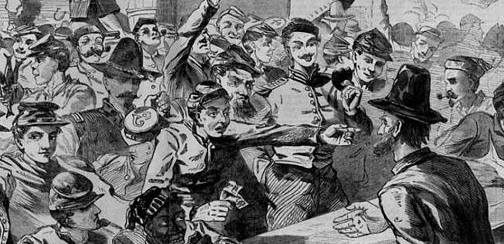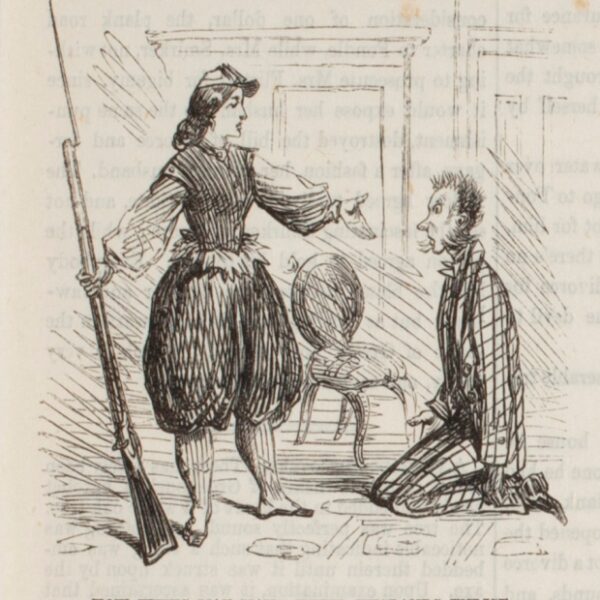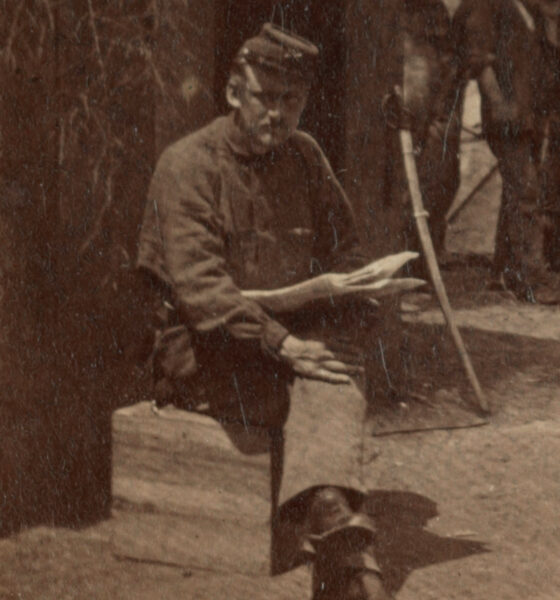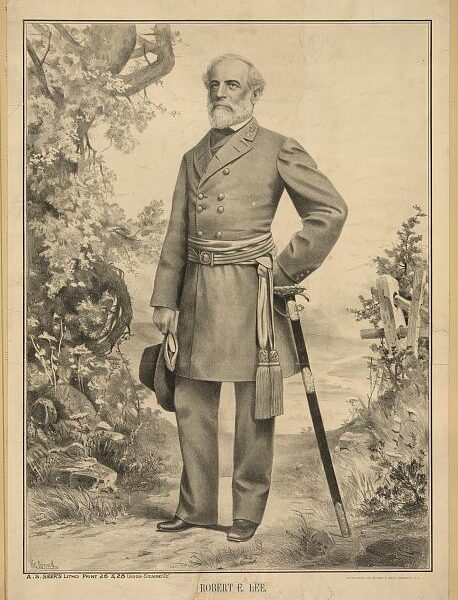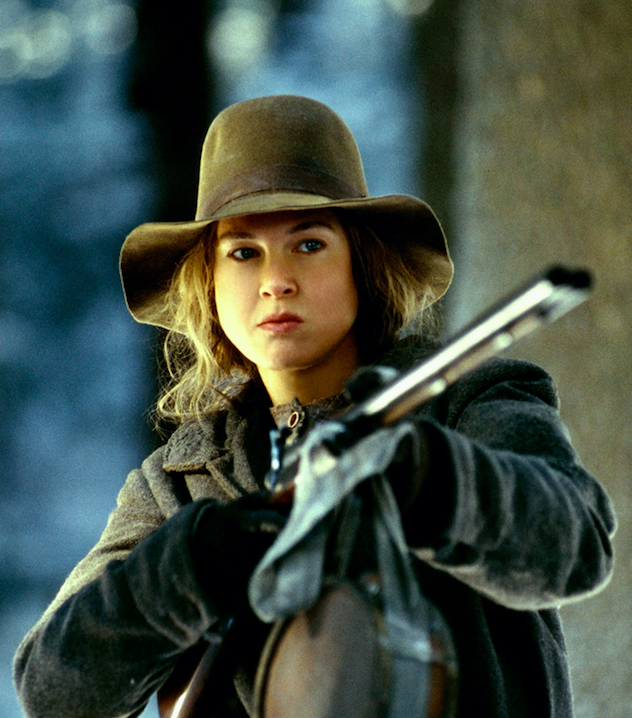
For our recent newsstand-only special issue The Civil War Almanac, we asked a number of Civil War historians for their opinions on a variety of popular topics, including the war’s most overrated and underrated commanders, top turning points, and most influential women. Space constraints prevented us from including the full answers to one of the questions: What are the 10 best Civil War movies? Here are the complete lists of two of our participants, which illustrate that successful historical films rely on a good story well told.
Matthew Christopher Hulbert
1. Gone With the Wind (1939)
I have defined “best” here as the films, TV programs, or documentaries that have wielded the greatest influence over how Americans understand, imagine, and remember the Civil War. Thus, in tandem with Margaret Mitchell’s novel, which was an international sensation in its own right, Victor Fleming’s magnum opus has unquestionably done—and continues to do—more to influence the way multiple generations of Americans remember the Civil War and its causes than any other piece of popular fiction. Unfortunately, that influence involved propagating the idea of happy, loyal slaves and caricatured, untrustworthy Yankees in the lead-up to the civil rights movement.
2. The Birth of a Nation (1915)
Following a private screening at the White House, President Woodrow Wilson allegedly said that D.W. Griffith’s blockbuster was “like writing history with lightning” and lamented that the film’s plot—which included black rapists, incompetent black politicians, avaricious Yankee villains, and heroes decked in the regalia of the Ku Klux Klan—was “all so terribly true.” Despite its gross historical inaccuracies, the film served as a rallying cry for proponents of Jim Crow segregation and spawned false understandings of Reconstruction that continue to reverberate.
3. The Civil War (1990)
Ken Burns’ nine-episode documentary series made Shelby Foote a household name, introduced David McCullough’s now iconic voice to television history, and combined new—but ironically quite simple—camera techniques with an unforgettable soundtrack to change what Americans expect from historical documentaries. Despite its flaws and charges of Lost Cause-ism, The Civil War was a TV phenomenon that has stood the test of time; it remains the gold standard of Civil War documentaries.
4. Glory (1989)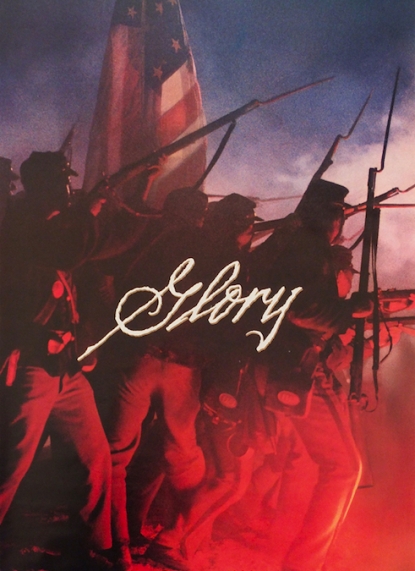
If assessed only for cinematic and technical qualities, Glory would likely be the finest motion picture on this list. Chronicling the formation of the 54th Massachusetts Infantry led by Robert Gould Shaw and culminating with the regiment’s heroic service at Fort Wagner, the film illustrated for the first time the major contributions and sacrifices of black soldiers to the Union war effort—and landed a serious blow in American pop culture against the mythology of the Lost Cause.
5. Gettysburg (1993)
It can be campy at times (think Robert E. Lee strolling dreamily through wildflowers), but coming on the heels of Ken Burns’ documentary, Ron Maxwell’s film adapted Michael Shaara’s Pulitzer Prize-winning novel The Killer Angels (1974) to show audiences the moving parts and gory results of a major Civil War battle as they’d never seen before on the big screen. Moreover, the movie featured standout performances from Tom Berenger, Stephen Lang, Richard Jordan, Jeff Daniels, Sam Elliott, and Kevin Conway.
6. The Outlaw Josey Wales (1976)
Clint Eastwood’s iconic role as a Missouri farmer-turned-bushwhacker showed another side of the Civil War: It introduced millions of American moviegoers to the guerrilla conflict. And in spite of some cringeworthy dialogue (e.g., Wales’ and Indian chief Ten Bears’ “words of life and death”), the film does get quite a bit right about irregular violence and its aftermath. It was later revealed that the book upon which the film was based had been penned by none other than exiled segregationist Asa Earl Carter, who had borrowed significantly from the little-known historical account of real-life bushwhacker William Wilson.
7. The Red Badge of Courage (1951)
Based on the book by Stephen Crane and directed by Hollywood legend John Ford, the film featured Audie Murphy (who happened to be the most decorated American veteran of World War II) as a soldier struggling to cope with cowardice and the ferocity of Civil War combat. It provided a darker look at manhood and the futility of war at a time when many other war pictures fit snugly into a mold of triumphant American exceptionalism.
8. Ride with the Devil (1999)
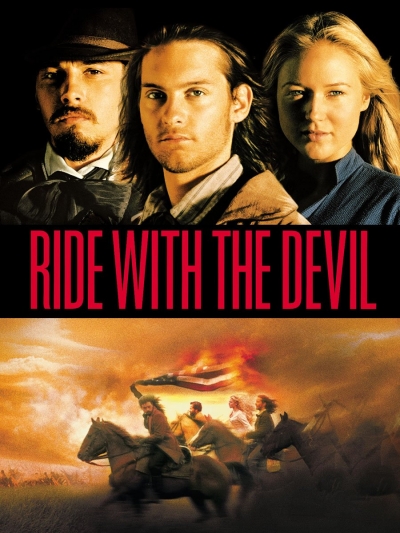 Ang Lee’s 1999 adaptation of Daniel Woodrell’s novel Woe to Live On (1987) follows a group of Confederate bushwhackers in the Missouri-Kansas borderlands. Much of the picture is historically on point; indeed, it is by far the most accurate and complete portrayal of Civil War guerrilla violence on film. The film’s deepest flaw is its treatment of Daniel Holt (Jeffrey Wright), a slave who hides out with the guerrillas and participates in the Lawrence Massacre. The character is based on a real-life slave named John Noland. That said, no primary evidence exists to suggest that Noland—or any other slaves—fought voluntarily for the Confederate cause and to maintain their enslavement.
Ang Lee’s 1999 adaptation of Daniel Woodrell’s novel Woe to Live On (1987) follows a group of Confederate bushwhackers in the Missouri-Kansas borderlands. Much of the picture is historically on point; indeed, it is by far the most accurate and complete portrayal of Civil War guerrilla violence on film. The film’s deepest flaw is its treatment of Daniel Holt (Jeffrey Wright), a slave who hides out with the guerrillas and participates in the Lawrence Massacre. The character is based on a real-life slave named John Noland. That said, no primary evidence exists to suggest that Noland—or any other slaves—fought voluntarily for the Confederate cause and to maintain their enslavement.
9. North and South (1986)
Americans of a certain age will recall that North and South, essentially a soap opera based on the coming of the Civil War, constituted a legitimate TV sensation. The miniseries format attracted viewers unlikely to sit through a documentary or more traditional war film—and actually dealt thoughtfully with issues of slavery and gender.
10. The Horse Soldiers (1959)
Starring John Wayne and William Holden, the second John Ford film on the list abandons the darker elements of the war to focus on the glories of soldiering and the romance of reunion. As a sort of fusion of The Quiet Man (1952) and The Searchers (1956), it features comedic breaks in the form of drunken Irish sergeants and boy-soldiers spanked on the battlefield, daring cavalry charges (which Wayne’s horse did not appear to appreciate), and melodramatic backstories. The film’s conclusion involves Wayne’s character, a colonel in the Union cavalry, falling in love with a southern belle—a silver screen reaffirmation of the sociopolitical alliances outlined by historian David Blight in Race and Reunion: The Civil War in American Memory (2001).
Matthew Christopher Hulbert is the author or editor of three books, including The Ghosts of Guerrilla Memory: How Civil War Bushwhackers Became Gunslingers in the American West (University of Georgia Press, 2016), which won the 2017 Wiley-Silver Prize. Beginning in the fall of 2019, he will be an assistant professor of American history at Hampden-Sydney College in Virginia.
James Marten
1. Pharaoh’s Army (1995)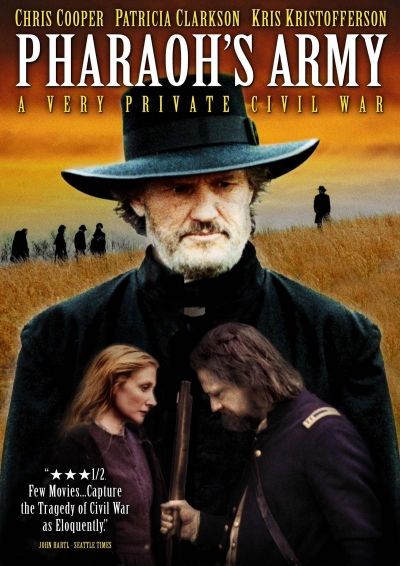
This is a riveting, well-acted, and atmospheric account of a small squad of Union cavalrymen (led by an officer heartachingly played by Chris Cooper) who are forced to take over the farm being managed by the wife of an absent Confederate soldier. Although there are moments of empathy and a kind of attraction develops temporarily between the officer and the farmwife, the movie recognizes the difficulty of either reconciliation or sympathy between North and South, even at the micro level, and understands that violence is sometimes the easiest, if unhappiest, resolution.
2. Lincoln (2012)
Impossible not to include in a list of best Civil War movies, Lincoln transcends an “inside baseball” approach to legislating emancipation and a bit of Spielbergian overreach. Daniel Day-Lewis offers the kind of Lincoln that Americans want to believe in, and that most historians found palatable.
3. Glory (1989)
Although it doesn’t completely avoid romanticizing the contributions of African-American soldiers, this remains a moving narrative of sacrifice and ideology, with terrific battle scenes and great acting. It’s particularly effective in presenting the ambiguity in the relationships between the Union army’s white officers and black common soldiers.
4. Cold Mountain (2003)
Based on Charles Frazier’s award-winning 1997 novel, Cold Mountain’s vivid imagery, excellent cast, and compelling vignettes drive a narrative that covers all the bases of the southern home front: hardship and loyalty, greed and disaffection, confusion and heartbreak. Despite probably trying to do too much, it all rings true. However, after enduring all of Confederate deserter W.P. Inman’s extraordinary adventures and close calls, the viewer deserves a happier ending.
5. Gettysburg (1993)
Based on Michael Shaara’s The Killer Angels, this film captures some of the charm of its source novel—especially in the personalities of the main characters—and overcomes a great deal of earnest speechifying and appalling facial hair to give us a sense of how a Civil War battle might have looked and why men fought. It’s not exactly Saving Private Ryan, but it is effective when taken on its own terms.
6. The Beguiled (1971)
A candidate for the creepiest Civil War movie ever made, this one features a youngish Clint Eastwood as a wounded Union soldier being seduced and, in turn, seducing various members of a household of southern women and girls. Although not particularly useful in helping viewers understand the war, it does present a band of women that could be seen as a somewhat through-the-looking-glass version of the ladies featured in the famous 1864 painting of the funeral of a Confederate cavalry officer, The Burial of Latané: Both portray women trying to manage in a world without men.
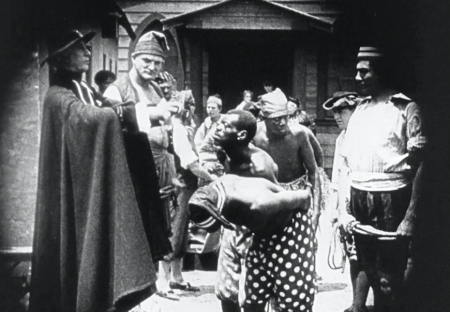 Alamy
AlamyA scene from “Birth of a Nation.”
7. The Birth of a Nation (1915)
The movie’s technical sophistication (for its time), complicated story line (featuring more nuanced versions of the relationship between the North and South than many movies), impressive battle scenes, and sweeping narrative almost balance out its appalling racism. But even that provides somber teachable moments for those studying the racial politics and culture of not only the Civil War and Reconstruction but also the era in which the movie was made.
8. Shenandoah (1965)
A favorite of mine since childhood, Shenandoah suffers from a little wooden acting by supporting characters and a few unlikely scenarios. (When do these white non-slaveowners actually do the work on this huge and apparently prosperous farm of theirs?) But its flaws fail to completely overwhelm some useful points related to disaffection, Confederate tax policies, and the fog of war. And Jimmy Stewart does a classic slow burn as the doggedly determined, apolitical farmer whose family is nearly destroyed by the conflict.
9. Major Dundee (1965)
Featuring Charlton Heston and Richard Harris, this was one of Sam Peckinpah’s first directorial efforts. Implausible, messy, and famously plagued with on-set and post-production problems, it’s on my list because it brings together several disparate and unusual historic threads: the war in the far western theater, the use of “galvanized” Yankees to fight Indians, the ongoing Indian wars that eastern-obsessed Civil War buffs usually ignore, and the invasion of Mexico by French troops during the 1860s.
10. Journey to Shiloh (1968)
Another film from my childhood, Journey to Shiloh follows seven cocky Texans as they travel to join the Confederate army before the Battle of Shiloh. It’s not a great movie, but a useful one. Its clumsy anti-war message—all but one of the boys die from a variety of accidents and fights along the way and in the battle itself—is notable coming just three years after the war’s centennial. And, in one of his first movies, Harrison Ford plays one of the unfortunate young men.
James Marten is professor of history at Marquette University and a former president of the Society of Civil War Historians. His most recent books are Sing Not War: The Lives of Union and Confederate Veterans in Gilded Age America (2011) and America’s Corporal: James Tanner in War and Peace (2014).
This article appeared in the Summer 2019 issue (Vol. 9, No. 2) of The Civil War Monitor.

